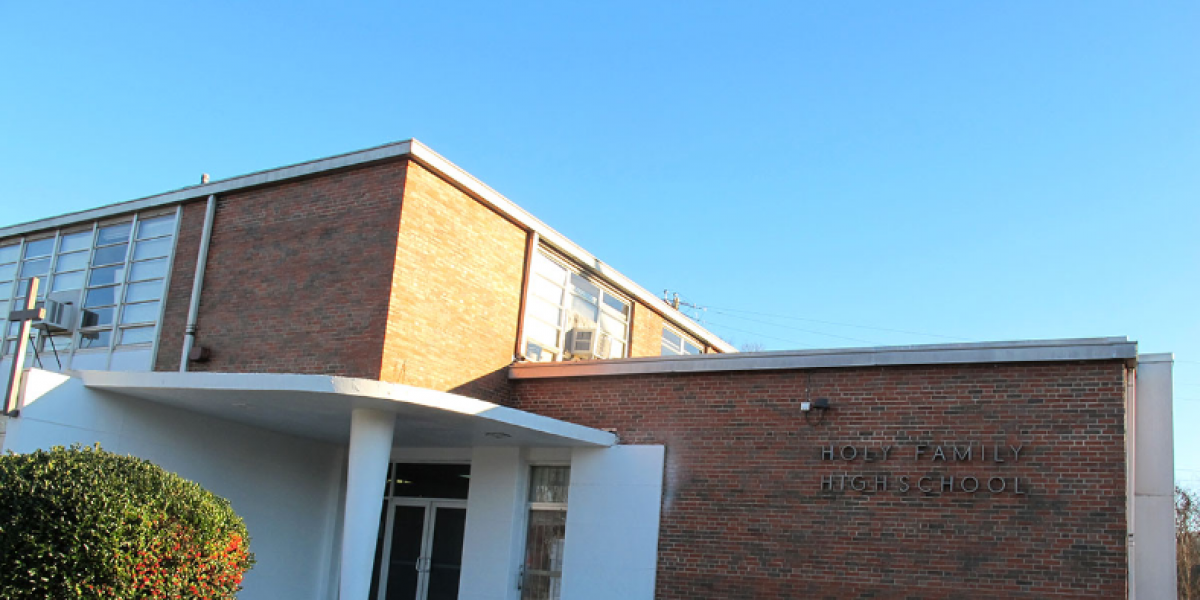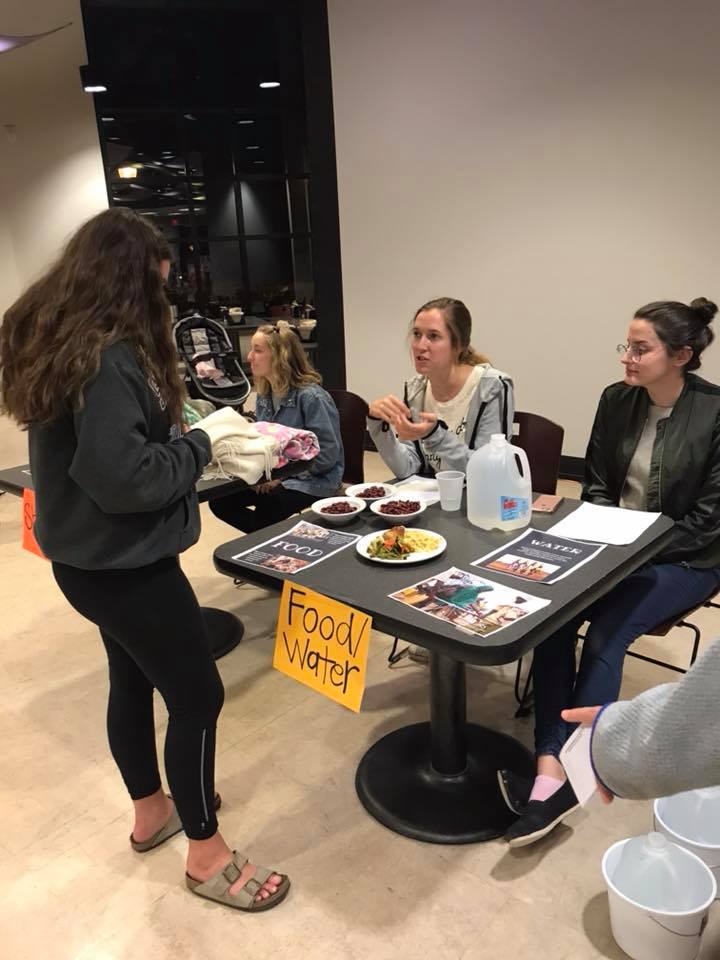USA: Furthering Justice with Cristo Rey in Georgia, Alabama
10 February 2015|Mary Doan, JRS/USA Outreach Coordinator

Jesuit Refugee Service/USA Outreach Coordinator Mary Doan recently visited high schools in Georgia and Alabama. She reflects on the experience of discussing the rights of refugees and the forcibly displaced while visiting areas where the civil rights movement began.
My latest outreach trip to the south was meaningful to me, as it happened to coincide with the Martin Luther King, Jr. Day weekend. Rev. King worked towards social justice — against racism, to end poverty, and for peace. In a similar fashion, Jesuit Refugee Service/USA works toward social justice but with refugees and forcibly displaced people.
To further our work of social justice, Jesuit Refugee Service/USA has partnered with the Cristo Rey school network to educate students on issues affecting refugees and other forcibly displaced people, and hopefully empower the students to be advocates for refugees.
A Cristo Rey video explains more about the organization: “The Cristo Rey school system serves only low income youth and equips students with knowledge, character, and skills to transform their lives. Unfortunately, many young people are shut out from good schools simply because of family income. … these are real teenagers who are talented and want to learn and have real dreams. Cristo Rey are the doors to these student’s dreams.”
Martin Luther King, Jr. and his dream were born in Atlanta, the site of my first Cristo Rey school visit in the south. During my trip to Atlanta, I wondered if MLK’s actions in our country’s history played any part on Georgia’s current views on human rights issues. While some countries and even certain states are less than welcoming to refugees and immigrants, I was amazed to learn that Georgia has one of the highest refugee populations in the U.S.
Georgia has a history of helping — for decades, Georgia welcomed thousands of refugees. Some of the most represented nationalities among newcomers in Georgia include Bhutanese, Burmese, Congolese, Ethiopian, Eritrean, Iraqi, Iranian, Somali and Sudanese.
I shared with the students from Cristo Rey Atlanta Jesuit High School how both of my parents were refugees, and asked if they knew any refugees themselves. In each class, there were always a few students who shared their story of someone they knew in the community.
One student said, “My dad was refugee for four years.” Another student explained how she met someone from her church who lived in a refugee camp. Perhaps the most shocking thing I witnessed was when one student shared that he was born in a refugee camp. By learning that one of their own classmates was a refugee, it made my presentation more relevant to the students, and that this was not an overseas issue.
“Anyone of us can be refugees and we should help our brothers and sisters,” said Aliya Sealey. “The presentation really hit close to home. Having been in situations and knowing people who have been in situations in which they are forced out of their homes, I am very passionate about human rights and I hope to get involved in JRS when I get older,” said another student.
Another powerful moment during my presentation was seeing the student reactions when I shared some refugee statistics. This part of my talk really startled some of them, as I heard gasping sounds and side chatter like “wow, we’re so ungrateful” around the classroom. I was able to show them images from 850calories.com to demonstrate what a refugee in Africa is currently eating. Some were shocked by the knowledge.
“It made me sad that all that I learned didn’t surprise me, but I am glad that I have more awareness about their situation,” said Djana Martin, a student at Cristo Rey Atlanta.
The next leg of the trip took me to Holy Family Cristo Rey High School in Birmingham, Ala. It’s a good sign when you can present to a “difficult”class and have them participate in a discussion. Mr. Lea, the theology teacher, was glad to have JRS/USA come present and will include refugee issues in his upcoming class lectures.
They day I presented to students in Birmingham happened to fall during Catholic Schools Week this year with the theme of “Faith, Knowledge, and Service.” As part of their service for this year, Griena Davis, campus minister, will work with Mr. Lea to develop service opportunities and fundraisers that will benefit JRS’ work with refugees.
Seeing the areas in downtown Birmingham where MLK was active in peaceful demonstrations renewed my spirit working for refugees and social justice issues. On that same week that I was in Atlanta, the March for Life was happening in Washington, D.C. As a Catholic organization, we recognize that all lives matter — from conception to natural death — including the lives of refugees.
I can’t help but notice that the timing of that event and Catholic Schools Week aligned so well with the Jesuit Refugee Service/USA mission. That these outreach visits to schools have a great impact on students and is evident in their reactions. “I always wanted to be a missionary, and now I feel more determined to be one by this JRS presentation,” said Giselle Ayala.




